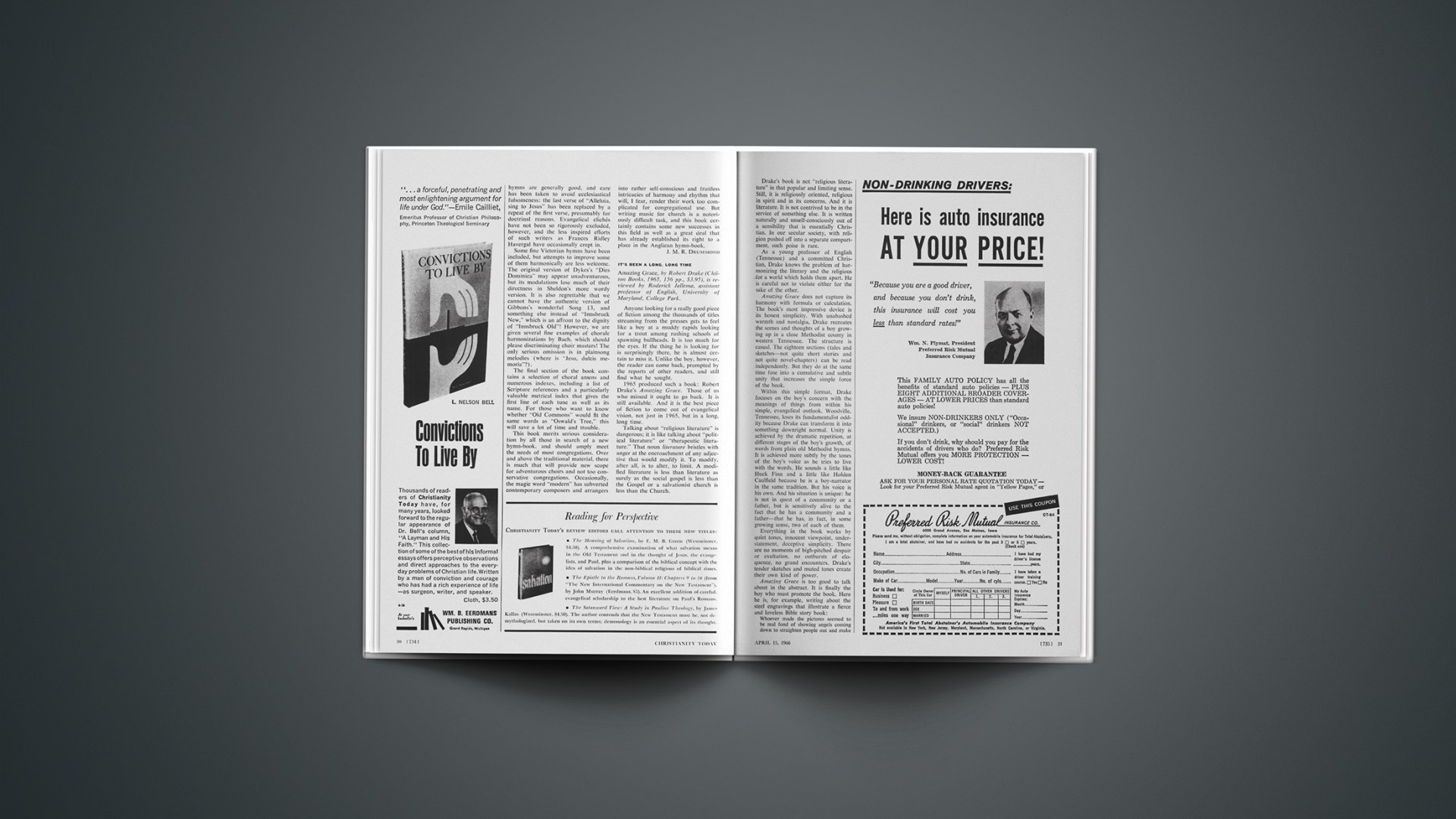“The death of Christ has not the place assigned to it, either in preaching or in theology, which it has in the New Testament.” That was written by James Denney more than half a century ago in the Preface to The Death of Christ. It may well be that the position has changed, at any rate with regard to theology, since then. The work of Barth and Brunner, the studies of Vincent Taylor and Alan Richardson’s Introduction to the Theology of the New Testament combine to modify Denney’s statement. In addition to this there is the resurgence of conservative evangelicalism as an academic force as well as a religious vitality, with such books as Leon Morris’s Apostolic Preaching of the Cross.
About preaching I am not so sure. With some shining exceptions preachers do not seem to assign to the death of Christ the place which it has in the New Testament. It is not unmentioned, of course; and many refer to it as more than an example of faithfulness or as the final exhibition of the love of God. But it does not fill the horizon.
There are a number of reasons for this. It is partly, I believe, because men have frankly abandoned the characteristic New Testament attitude, a belief in the theological and the evangelistic efficacy of the Cross. We have indeed a not infrequent reference to the life, death and resurrection of our Lord, but this “one event,” as it has been called, has strangely lost its cutting edge. I have been told, for example, by distinguished leaders in the church that it is no good going to Japan and preaching St. John 3:16. “They simply would not understand.” Even if we make allowance for the fact that in the Japanese language there is no word for “sin,” the remark, coming from the source that it did, is serious enough to be disturbing. And similarly, it has been asserted, it is no good going to India to proclaim the evangelical message of the Cross, which is old-fashioned and does not meet the needs of the present day. Such hesitation betrays the melancholy fact that the religious salesmen have little confidence in the goods which they are supposed to offer.
Both views neglect the doctrine of the Holy Spirit. “… there is no ‘problem of communication’ that the Spirit cannot solve” (Alan Richardson, Introduction to the Theology of the New Testament, p. 119). And neither view seems to ask whether the New Testament doctrine of the Cross is true. Did our Lord do something there which we could not do for ourselves? Did He do something which no other could do? Did he do some mighty work without which we should still be in our sins, lost? Did He do that unique work which we have been commissioned to preach? If the answer is an emphatic affirmative, then we have no option: we must faithfully discharge the divine commission, even if no man in the world believe us. If, however, our answer is negative, then we can pick and choose those aspects of the New Testament which appeal to us, but it does not matter very much. Nothing particular hangs on it, and it may be doubted whether our proclamation can be introduced without a burning “Thus saith the Lord.”
There are others whose views are determined by what we might call “the novelist’s puzzle.” How often do the characters of fiction or the mythical “man in the street” or those who take their ideas from the popular untheological atmosphere long to return to the “simple teaching of Jesus,” leaving behind the dogmas of the church and all that is bound up with doctrines of atonement and the unhappy influence of St. Paul!
And it is not only the popular novelist. Sir Harold Nicolson, Honorary Fellow of Balliol College, Oxford, biographer of His late Majesty Ring George V, who held office during the war, represents a more academic and perhaps a more sophisticated approach. He does not believe in God or in survival after death. He dislikes St. Paul for depriving Christ’s message of its original sweetness and distorting it into a doctrine which was pragmatic, intolerant and hard (My Philosophy of Life: A Symposium, ed. by the Rt. Hon. Lord Inman, London, 1958, pp. 120, 121). This is a strange view of the man who wrote First Corinthians 13; and it may seem stranger still when the teaching of our Lord is closely examined.
There is another factor, which has been called “the reproach of the cross.” To preach the Christ who died for me, and why He died for me, and what He did for me, places the preacher in a position where he may be criticised for giving prominence to himself; for lack of depth in his thought; and for oversimplifying the message.
But this is the price we have to pay if we are really going to preach Christ. Spurgeon, one of the humblest of men, could admire the abstinence of great preachers like Robert Hall and Chalmers who did not mention themselves at all, but he believed that “if some of us were to follow their example, we should be throwing away one of the most powerful weapons of our warfare.” We may therefor ask the preacher: What has Christ really done for you? Tell it out!—DR. RONALD A. WARD, rector of Kirby Cane and Ellingham in the Diocese of Norwich, England, in the introduction to his book Royal Theology: Our Lord’s Teaching About God (London: Marshall, Morgan and Scott, 1964).










